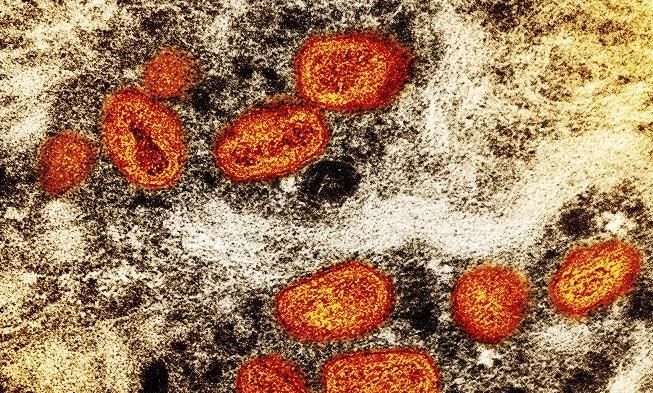Canada has not needed to declare an emergency over the monkeypox virus the same way the United States and the World Health Organization have as mechanisms are already in place to tackle the outbreak, the country’s top doctor said Friday.
Dr. Theresa Tam’s comments came a week after the U.S. declared a public health emergency in response to the monkeypox outbreak, which followed the WHO declaring monkeypox a global health emergency last month.
“There’s a very different approach in terms of accessing authorities and funding in the United States compared to Canada,” said Tam during a virtual news conference.
“We have different approaches … with the provinces being able to declare crises, emergencies at their level,” she added.
Tam noted that when the COVID-19 pandemic first hit Canada over two years ago, there was no actual declaration at the federal level for a public health emergency under the Emergencies Act.
“For monkeypox, we’ve been already doing all the things that the U.S. is also doing — being able to mobilize vaccines, being able to mobilize therapeutics,” she said, adding that the local and provincial authorities have the flexibility to do what they need to respond.
“Health Canada regulatory authorities are there for emergency purposes as far as needed as well,” Tam said.
In Canada, as of August 10, 1,059 monkeypox cases have been reported across the country, with Ontario leading the case count with 511 infections, followed by Quebec with 426.
To date, there have been 28 hospitalizations, including two ICU admissions, due to monkeypox, but no deaths in Canada.
Tam said there were some “early signs” that cases are slowing down in the country, but it’s “a little too soon to tell.”
PC’s criticized for monkeypox vaccine communication
The growing threat of monkeypox has raised alarm in countries, including Canada, not accustomed to seeing such a surge as much still remains unknown about the viral infectious disease.
Globally, more than 31,000 cases have been confirmed in 91 countries, according to the WHO. Tam said this represents a 19 per cent increase in global cases over one week.
On July 23, WHO’s chief declared monkeypox a public health emergency of international concern, citing the unprecedented rapid spread of the virus to many countries; the risk it poses to human health, and the potential for interference with international traffic.
Under the International Health Regulations (IHR), when a “public health emergency of international concern” is declared, international efforts are required to stop the spread of the virus. This could include sharing vaccines and treatments among countries and taking travel-related measures.
In Canada, the federal government has deployed to provinces and territories more than 99,000 doses of the Bavarian Nordic’s Imvamune or MVA-BN vaccine, normally used to treat smallpox.
More than 50,000 people have been vaccinated, as of August 11, said Tam.
Monkeypox is primarily transmitted through prolonged close contact with an infected person and the majority of cases reported in the current outbreak involve men who had intimate sexual contact with other men.
The current outbreak in Canada is largely from person-to person spread, said Tam, but the virus can also spread through direct contact with contaminated objects such clothing, sheets or other personal items.
Symptoms of monkeypox include a painful rash that could last between 14 and 28 days, which can be accompanied by fever, chills, headache, swollen lymph nodes, muscle pain, joint pain, back pain or exhaustion.
Experts urge Canadian officials to take more action on monkeypox spread
© 2022 Global News, a division of Corus Entertainment Inc.



